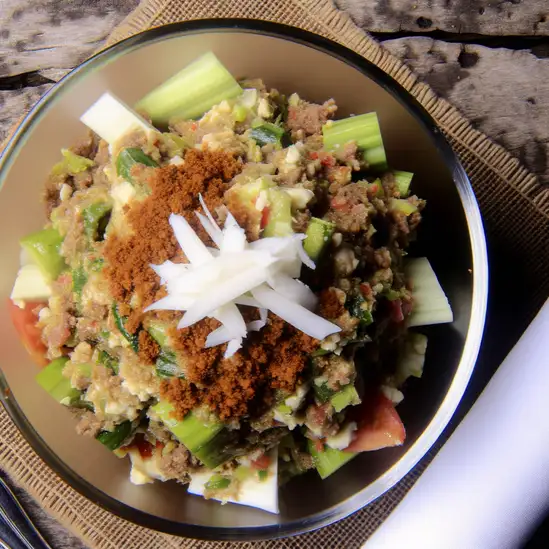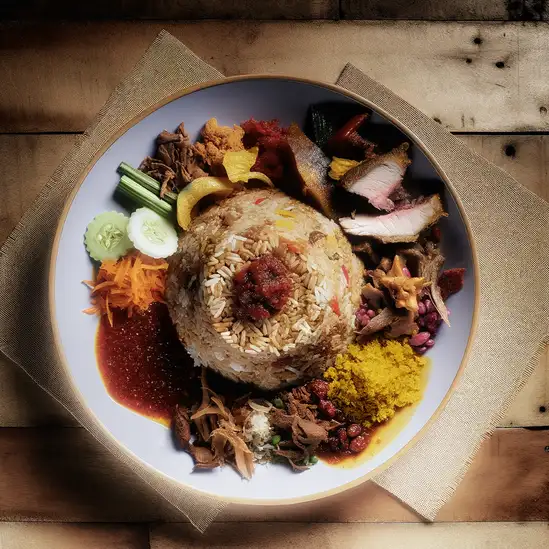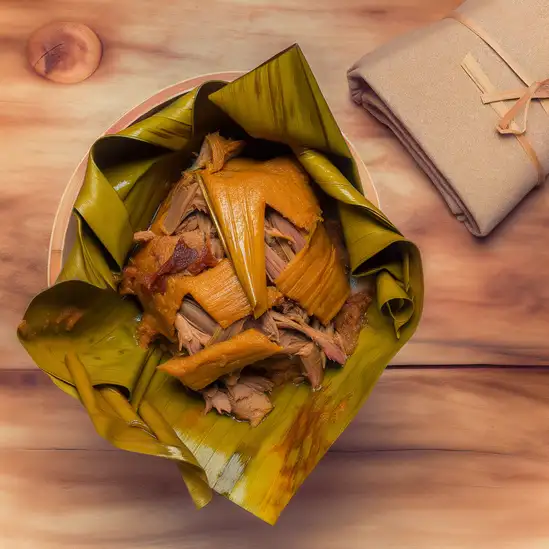


Imagine stepping onto Nusa Lembongan and instantly feeling the pace slow down,like the island itself is inviting you to breathe a little deeper. This place hums with a laid-back energy that’s both refreshing and contagious. The air carries a salty tang from the ocean,mingling with the sweet scent of frangipani flowers that bloom along narrow sandy paths. Everywhere you look,vibrant fishing boats bob gently in turquoise waters,while locals greet you with warm smiles that make you feel like you’ve stumbled into a close-knit community rather than a tourist spot. The island’s charm lies in its simplicity and natural beauty. You can spend your mornings wandering through seaweed farms,watching the sun paint the sky in shades of pink and gold,or diving into crystal-clear waves that reveal colorful coral gardens below. The soundscape is a soothing mix of crashing waves,rustling palm leaves,and distant laughter from beachside cafes where the aroma of freshly grilled seafood and spicy sambal tempts your taste buds. What really sets Nusa Lembongan apart is its blend of traditional island life and a welcoming vibe that embraces travelers without overwhelming them. Whether you’re exploring hidden coves on a scooter,sharing stories over a cold Bintang beer at sunset,or simply lying in a hammock swaying with the breeze,the island invites you to slow down and savor every moment. It’s a place that stays with you long after you leave,whispering the promise of peace and adventure all at once.
The information on this page is currently being reviewed by Tripkliq and should be used as a guide only
Eng word: Hello
Eng pronunciation: Om Swas-tee-as-too
Local language: Om Swastiastu
Eng word: Goodbye
Eng pronunciation: Om Shan-tee Shan-tee Shan-tee Om
Local language: Om Shanti Shanti Shanti Om
Eng word: Thank you
Eng pronunciation: Sook-smah
Local language: Suksma
Eng word: How much
Eng pronunciation: Nyak koo-deh
Local language: Nyak kude
Eng word: Toilet
Eng pronunciation: Kah-mar keh-cheel
Local language: Kamar kecil
Eng word: Help me
Eng pronunciation: Too-loong-een tee-ang
Local language: Tulungin tiang
Eng word: Yes
Eng pronunciation: Eeng-gee
Local language: Inggih
Eng word: No
Eng pronunciation: Too-sing
Local language: Tusing
Eng word: Excuse me
Eng pronunciation: Am-poo-rah
Local language: Ampura
Nusa Lembongan has a long history of seaweed farming, which has been a primary source of livelihood for the local community for centuries. The island's clear waters and favorable conditions make it an ideal location for cultivating seaweed.
The island is rich in traditional Balinese culture, with numerous temples and cultural practices that have been preserved over generations. Visitors can witness traditional ceremonies and festivals that are unique to the island.
Nusa Lembongan is home to extensive mangrove forests, which have been protected and preserved for their ecological importance. These mangroves provide a habitat for diverse marine life and are a popular spot for eco-tours.
One of the island's unique attractions is the Gala-Gala Underground House, a labyrinthine structure built by a local farmer over 15 years. This underground house showcases the ingenuity and craftsmanship of the island's residents.
The island features a historic lighthouse that has guided sailors safely through the waters for many years. It stands as a symbol of the island's maritime heritage and offers stunning views of the surrounding sea.
Devil's Tear is a natural rock formation on the island's coast, known for its dramatic waves and breathtaking sunsets. This spot has been a natural wonder for centuries, attracting visitors with its raw beauty.
Mushroom Bay is a picturesque beach named after the mushroom-shaped coral formations found in its waters. It has been a popular spot for snorkeling and diving, showcasing the island's vibrant marine life.
Jungut Batu Village is one of the oldest settlements on Nusa Lembongan. It has retained its traditional charm with its narrow streets, local markets, and traditional Balinese architecture.
The Yellow Bridge, also known as the 'Bridge of Love,' connects Nusa Lembongan with the neighboring island of Nusa Ceningan. This iconic bridge has become a symbol of the close relationship between the two islands.
In Nusa Lembongan, the most common Power Adaptor is Type C, Type F.



A Balinese-style satay made from minced meat mixed with grated coconut and spices, wrapped around bamboo sticks and grilled.

A traditional mix made from vegetables, coconut, and minced meat, often served as a side dish, rich in flavor and texture.

A mixed rice dish served with a variety of side dishes, including vegetables, meats, and sambal, offering a taste of local flavors.

Grilled fish marinated with spices and served with sambal, a popular dish enjoyed fresh from the sea.

A salad of boiled vegetables, tofu, and hard-boiled eggs, topped with a rich peanut sauce, offering a refreshing and healthy option.

Slow-cooked duck marinated with a blend of spices and wrapped in banana leaves, resulting in tender and flavorful meat.

Oxtail soup cooked with spices and vegetables, known for its rich flavor and hearty texture, often served with rice.
If you find yourself wandering through Kota Denpasar,you’ll immediately notice its lively heartbeat—a city that hums with everyday life yet carries a deep cultural rhythm beneath the surface. It’s not the polished tourist hub like southern Bali,but that’s exactly what makes it so captivating. The streets buzz with scooters weaving through markets where the scent of fresh spices mingles with the earthy aroma of tropical fruits. Vendors call out in warm,melodic tones,inviting you to taste something new or simply share a smile.
Denpasar feels like the authentic soul of Bali,where tradition and modern life dance side by side. You’ll see women in vibrant kebayas carrying offerings to temples,while nearby,young artists sketch murals that splash color onto old walls. The city’s pulse is both chaotic and comforting,with the clatter of street food stalls serving up fragrant nasi campur and the gentle chime of temple bells weaving through the air.
What’s truly special is how Denpasar invites you to slow down and soak in its layers—whether it’s the warmth of a local’s greeting,the taste of freshly brewed Balinese coffee,or the sight of intricate carvings on ancient temples tucked between bustling streets. It’s a place where you don’t just visit; you become part of the daily story,feeling the city’s spirit in every step you take.
If you ever find yourself craving a place where time slows down just enough to savor every moment,Ubud is that kind of sanctuary. Nestled in the lush heart of Bali,this town hums with a gentle rhythm—part spiritual retreat,part creative hub. Walking through its streets,you’ll catch the scent of frangipani and incense mingling with the earthy aroma of wet rice fields nearby. The air feels alive,filled with the soft chatter of locals,the distant clink of gamelan music,and the occasional call of a rooster greeting the dawn.
Ubud’s charm lies in its seamless blend of tradition and artistry. Temples with intricate stone carvings peek through vibrant greenery,while open-air markets burst with colorful textiles,hand-carved masks,and fresh tropical fruits. You can sip on a rich,earthy cup of Balinese coffee at a cozy café,watching artisans craft delicate silver jewelry or dancers rehearsing for an evening performance. It’s a place where culture isn’t just observed—it’s lived and breathed.
What really stays with you is the warmth of the people and the sense of connection to nature and spirit. Whether you’re wandering through the terraced rice paddies,joining a yoga class overlooking the jungle,or simply sitting by the Campuhan Ridge Trail at sunset,Ubud invites you to slow down,breathe deeply,and soak in a world that feels both ancient and vibrantly alive.
Imagine stepping into a place where the sun kisses your skin,the ocean hums a steady rhythm,and the air carries the scent of salty waves mixed with sizzling street food. That’s Kuta for you—a lively beach town in Bali that pulses with energy but still feels effortlessly laid-back. From the moment you arrive,you’re wrapped in a warm,welcoming vibe that’s both vibrant and relaxed. The beach stretches wide,dotted with surfers catching waves and locals selling fresh coconut water,while the sunset paints the sky in fiery oranges and pinks.
Walking through Kuta’s streets,you’ll hear a blend of languages,laughter,and the occasional beat of gamelan music drifting from a nearby warung. The town’s character is a colorful mix of traditional Balinese culture and a buzzing international crowd,creating a unique atmosphere where ancient temples sit just blocks away from lively markets and buzzing nightlife. The aroma of satay grilling over open flames mingles with the tropical flowers blooming nearby,inviting you to slow down and savor every moment.
What makes Kuta truly special is how it balances excitement with ease. Whether you’re learning to surf,bargaining for handmade crafts,or simply lounging on the beach with a fresh mango smoothie in hand,there’s a genuine warmth in the air. It’s a place that invites you to dive into its rhythm,soak up its stories,and leave with a heart full of memories and a little more sun-kissed than when you arrived.
If you’re dreaming of a place where laid-back beach vibes meet vibrant energy,Seminyak is that sweet spot. Imagine waking up to the gentle hum of waves brushing against golden sands,the salty breeze mingling with the scent of frangipani and sizzling street food. It’s a place where mornings start slow with a fresh coconut in hand,and the day unfolds with a mix of chic boutiques,bustling markets,and cozy cafes spilling onto sun-dappled streets.
What really makes Seminyak special is its effortless blend of tradition and trend. You’ll find ancient Balinese temples tucked between sleek beach clubs,and local artisans selling handwoven textiles right next to stylish galleries. The town pulses with a creative spirit—whether it’s the vibrant street art,the soulful sounds of gamelan music drifting from a nearby ceremony,or the tantalizing aroma of spices from warungs cooking up authentic dishes.
As the sun dips low,Seminyak transforms. The sky blazes with fiery oranges and pinks,and the beach comes alive with laughter,clinking glasses,and the soft strum of guitars. Dinner might be fresh seafood grilled over coconut husks or a plate of spicy satay enjoyed under twinkling fairy lights. It’s a place that invites you to slow down,soak in the moment,and savor the rich tapestry of sights,sounds,and flavors that make this corner of Bali unforgettable.
Imagine stepping onto Gili Trawangan and instantly feeling the world slow down. This little island off the coast of Lombok pulses with a laid-back energy that’s both refreshing and contagious. No cars or motorbikes here—just the gentle clatter of horse-drawn carts and the rhythmic splash of waves against white sandy beaches. The air carries a salty tang mixed with the sweet aroma of tropical flowers and sizzling satay from beachside warungs. As the sun dips low,the sky bursts into shades of pink and orange,casting a warm glow over the turquoise waters.
What makes Gili Trawangan truly special is its blend of vibrant island life and serene natural beauty. Days drift by snorkeling alongside graceful sea turtles or cycling through palm-fringed paths,while evenings come alive with the laughter of travelers sharing fresh seafood dinners under starlit skies. The island’s community feels like a patchwork of friendly faces from all over the world,united by a love for simple pleasures and adventure.
There’s a rhythm here that invites you to slow down and savor every moment—the crunch of coral underfoot,the hum of reggae tunes from a beach bar,the cool splash of the ocean after a day in the sun. Gili Trawangan isn’t just a place to visit; it’s a place to feel alive,to connect,and to create stories you’ll want to tell again and again.
Imagine stepping into a place where the ocean breeze carries the scent of salt and frangipani,and the rhythm of traditional gamelan music hums softly in the background. That’s Lombok for you—a vibrant island that feels both alive and laid-back at the same time. Unlike its flashier neighbor Bali,Lombok has this raw,untouched charm that invites you to slow down and really soak in the moment. The beaches here aren’t just pretty; they’re vast stretches of powdery white sand meeting turquoise waves that seem to whisper stories of ancient fishermen and island life.
Walking through the local markets,you’ll hear the lively chatter of vendors selling fresh spices,tropical fruits,and handwoven textiles. The air is thick with the aroma of grilled satay and sweet coconut,tempting you to try every bite. The Sasak people,with their warm smiles and rich traditions,add a deep cultural layer to the island’s character. You might catch a glimpse of their intricate weaving or hear tales of their unique ceremonies,which feel like a bridge between past and present.
What really stays with you about Lombok is its balance—between adventure and tranquility,nature and culture. Whether you’re hiking up Mount Rinjani’s misty slopes,diving into vibrant coral reefs,or simply sipping a fresh coconut by a quiet beach,there’s a genuine sense of connection here. It’s a place that doesn’t just fill your camera roll but leaves a quiet imprint on your heart.
Some ATMs on the island may be tampered with skimming devices to steal tourists' card information.
Tourists may book accommodations online that look luxurious in photos, only to arrive and find the property is in poor condition or nonexistent.
Some money changers offer attractive exchange rates but use sleight-of-hand tricks to shortchange tourists during the transaction.
Unscrupulous guides may sell expensive island tours that include stops at 'exclusive' locations, which turn out to be free or public areas.
Some operators offer cheap snorkeling or diving tours but fail to deliver on promises, such as taking tourists to subpar locations or cutting the trip short.
Tourists may be sold fishing trips with promises of high-quality equipment and good fishing spots, only to find poorly maintained gear and unproductive locations.
Some restaurants or beachside vendors may inflate prices for tourists, especially if menus lack clear pricing or are in a foreign language.
Tourists are often charged inflated prices for boat transfers between Bali and Nusa Lembongan. Some operators may also sell tickets for non-existent or unreliable boats.
Tourists renting scooters may be falsely accused of causing pre-existing damage to the vehicle, leading to demands for hefty repair fees.
Unlicensed guides may offer their services at a low cost but provide little value, inaccurate information, or even unsafe experiences.
Indonesia has very strict drug laws, and this includes Nusa Lembongan. The possession, use, or trafficking of illegal drugs can result in severe penalties, including long prison sentences and even the death penalty. Tourists should avoid any involvement with illegal drugs and be cautious about what they bring into the country.
In Nusa Lembongan, as in the rest of Indonesia, smoking is generally allowed in public places, but there are restrictions in certain areas such as government buildings, healthcare facilities, and educational institutions. Many restaurants and hotels may have designated smoking areas. It is advisable to look for 'No Smoking' signs and respect local regulations.
Vaping is less regulated than smoking in Indonesia, including Nusa Lembongan. However, it is still recommended to follow the same guidelines as smoking. Avoid vaping in non-smoking areas and be considerate of others, especially in enclosed spaces.
What are other people saying about Nusa Lembongan?
Recent Social posts about Nusa Lembongan
There is nothing to show you for now.